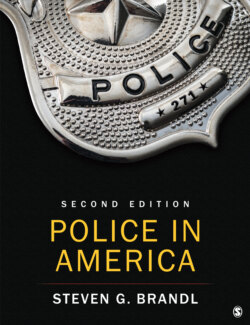Читать книгу Police in America - Steven G. Brandl - Страница 29
На сайте Литреса книга снята с продажи.
Ethics and Morals in Policing
ОглавлениеDiscretionary decisions of police officers on the street are influenced by many factors. Ideally, one of them is ethical standards. Similarly, policy and strategy decisions in law enforcement agencies should be based on ethical principles.29 As a result, ethics are important to consider when studying the police. Issues associated with ethics and morality are discussed in more detail in Chapter 8 and throughout the chapters via the A Question of Ethics features, but the topic is introduced here.
ethics: Rules of behavior that are influenced by a person’s perception of what is morally good or bad.
morality: A person’s internal beliefs about what is right or wrong conduct.
Ethics and morality are closely related and intertwined. Both relate to fundamental questions about what is right and what is wrong or what is good and what is bad. When a distinction is made, usually morality is concerned more with the individual and his or her internal sense of proper conduct. Ethics relate more toward the behavior of a person. A person whose behavior is ethical is also moral. The distinction is a fine one and is debated by philosophers.
For the police, ethical conduct is an especially serious concern because the police have extraordinary power, and “with great power comes great responsibility.”30 This axiom has great relevance for today’s officers. The police have extraordinary power and authority. Nowhere is this clearer than in their ability to use discretion, to make arrests, to conduct searches, and to use force. Officers can deprive citizens of their liberty, their property, and their life. In a fair and just society, the police are obligated to use their power and authority legally, responsibly, and ethically.
